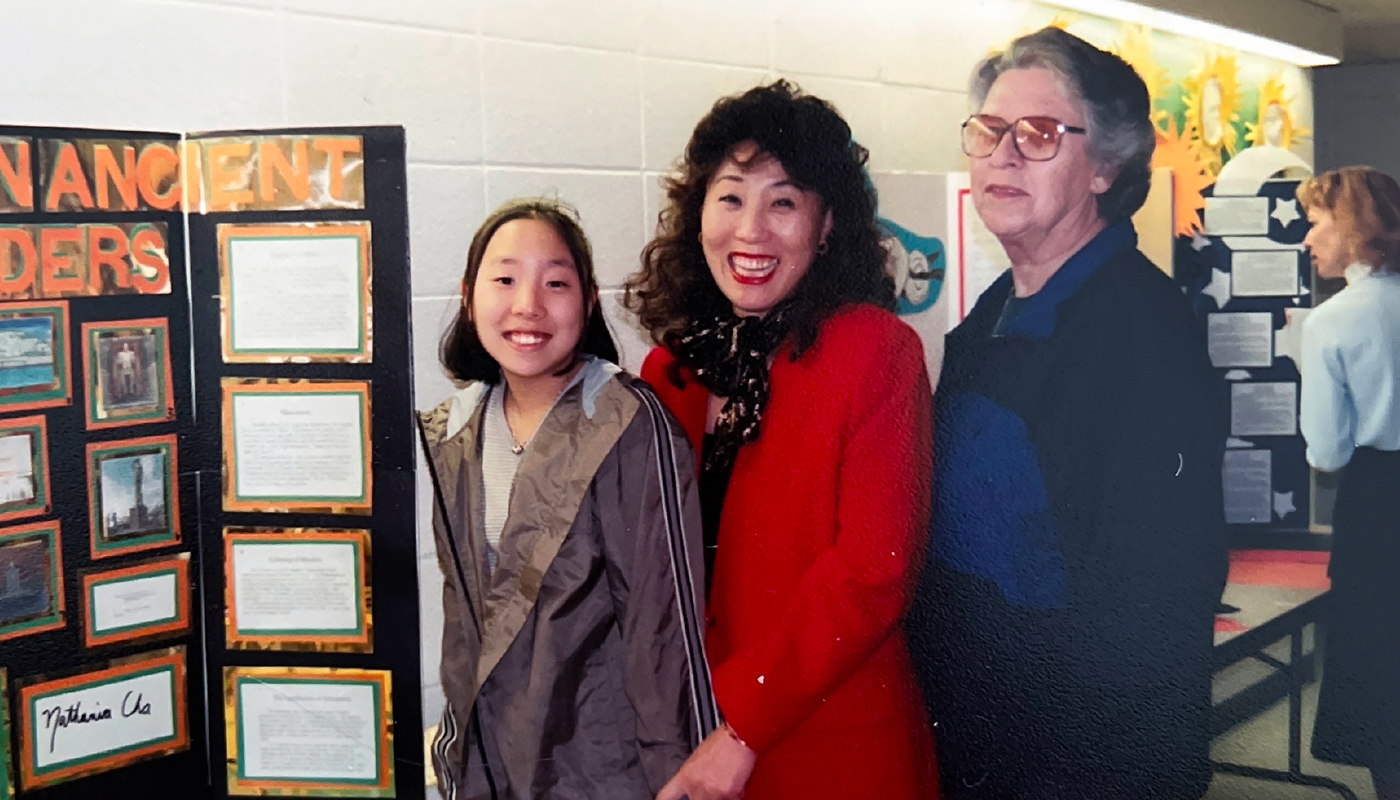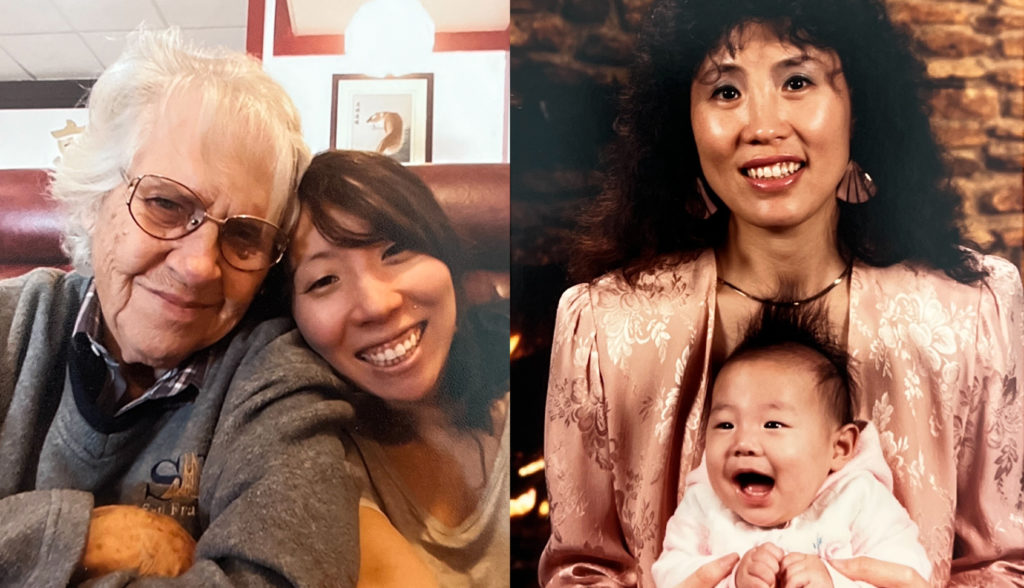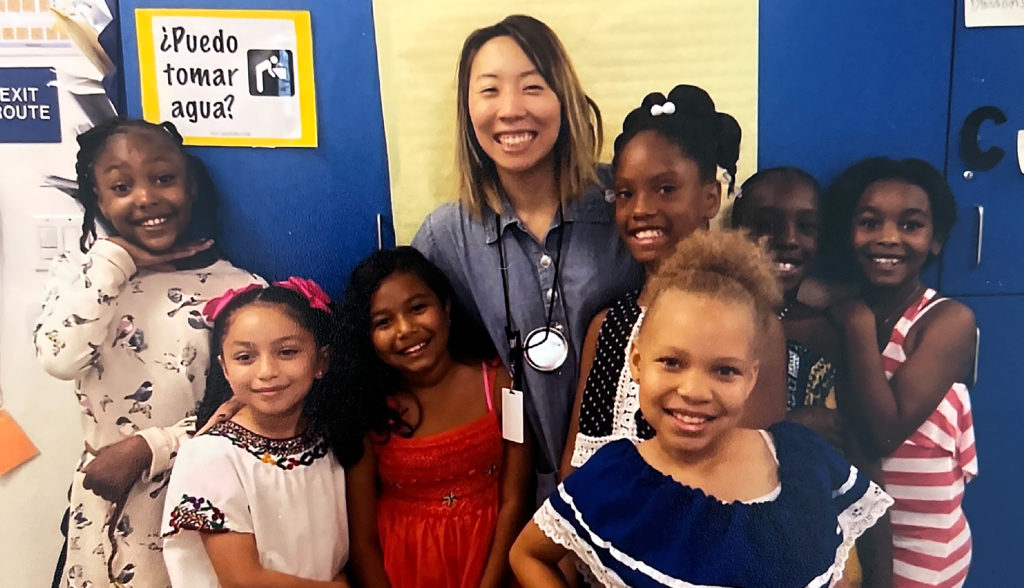
Throughout a typical year, Nathania Cha finds herself walking the halls of a variety of schools in big cities and small towns.
Cha is attuned to the similarities and differences that exist in various communities and is always excited to help enhance their meaningful learning environments.
“I feel at ease visiting all these schools and interacting with everyone from all different backgrounds,” Cha said. “I attribute that to my childhood.”
Cha, a Director of Implementation Success for Gradient Learning, grew up in the Kansas City suburb of Shawnee, Kansas. As the daughter of parents who immigrated from South Korea, Cha didn’t see a lot of fellow Korean-Americans in her classes. But her family helped provide her a Korean community through her involvement with a Korean school on Saturday and a Korean church on Sunday.
Cha’s supportive relatives played an integral role in her life from an early age. In particular, Cha received daily inspiration from her mother, Kumi Cha, and her godmother, Dee Miller.
Nathania Cha spent many weekends as a child in the home of Miller, who lived 45 miles away in Excelsior Springs, a town of about 10,000 people in rural Missouri. Cha, who never met her grandparents, and Miller, who never married or had children of her own, quickly developed a familial bond that has strengthened over the years.
Miller’s modest, warm home was filled with books and she passed on her love of reading to Cha. Before even starting kindergarten, Cha was an avid reader thanks to Miller and the two would spend hours together getting lost in stories.
“She had books everywhere and was always encouraging me to read,” Cha said. “I’m still a big reader and she’s the one who taught me how to read.”
Miller also taught Cha how to swim at an early age and helped provide a parenting perspective that differed from what Cha received at home. Cha also learned so much from her resilient mother, Kumi, a former cellist and cello teacher who overcame early language barriers after immigrating to raise three children in a loving environment. She did so while encouraging her husband’s career as an impressionist artist.
“Both my mother and godmother made independent choices in their life and they both inspired me to forge my own way in very different ways because they were different women,” Cha said. “My godmother was a white rural woman who put herself through college by working, and my mom was a Korean who always did what she had to do to take care of her family.
“Both of them make me who I am today.”

Cha, who lives in Los Angeles with her husband, didn’t expect to be an educator when she was younger. Inspired by the stories she’d read with Miller, Cha wanted to grow up to be a writer of fiction stories. Her passion for language continued in college when she majored in Applied Linguistics at Portland State University in Oregon.
While at PSU, Cha served as a teaching assistant and began learning more about the various methods of teaching, including reading the book “Pedagogy of the Oppressed” that opened Cha’s eyes to a potential new passion to follow.
“That book piqued my interest because it has a lot to do with power and injustice,” Cha said. “So I ended up being more interested in sociolinguistics and the power of language and discourse in classes.”
Cha, who would go on to earn Master’s degrees in Elementary Education and Teaching and in Building Administration, embarked on an education career that included her teaching at an elementary school and then working as a Data and Systems leader and Dean for a charter school network in Kansas City.
“I loved working with kids (as a teacher), but when I was able to use my research skills to make things better in schools is when I really fell in love with the work,” Cha said. “I saw that there was systemic work that I like doing that could help change the culture of a school. That’s when I realized that there was a place for me to do what I loved and make a real impact.”
All the while, Cha thought often of all that her mother and godmother went through in their lives to give her this opportunity. As a young woman in rural Missouri in the 1950s and 1960s, Miller was a pioneer for women’s rights and equity who ran for public office. She also served as a teacher for many years.
“She did a lot of things that were counter to her time and her community, and always fought (against stereotypes) really well and independently,” Cha said.

Cha, who joined Gradient Learning in 2018, sees a similar fighting spirit within each of the schools she closely works with to help them bring real change to their communities. Cha said her favorite part of helping schools find success as a Summit Learning partner is how “the work translates across lines of difference.”
“We have an ability to make an impact at a different scale,” Cha said. “Rural, private, public, charter. That’s everything to me. I love to see people fight to make shifts for their kids. They all want to take an innovative approach to do what’s best. It’s always about the kids.”
As Cha’s gotten more involved in reimagining education, it has enhanced her admiration for her mother and godmother and how they helped encourage her own continual growth.
“I’ve been reflecting on them more as I’m getting older and how they really showed me the value of independence and making your own choices,” Cha said. “They really forged their own path in life even though obstacles at the time were against them.
“They’re both so amazing and I just appreciate them both so much.”

